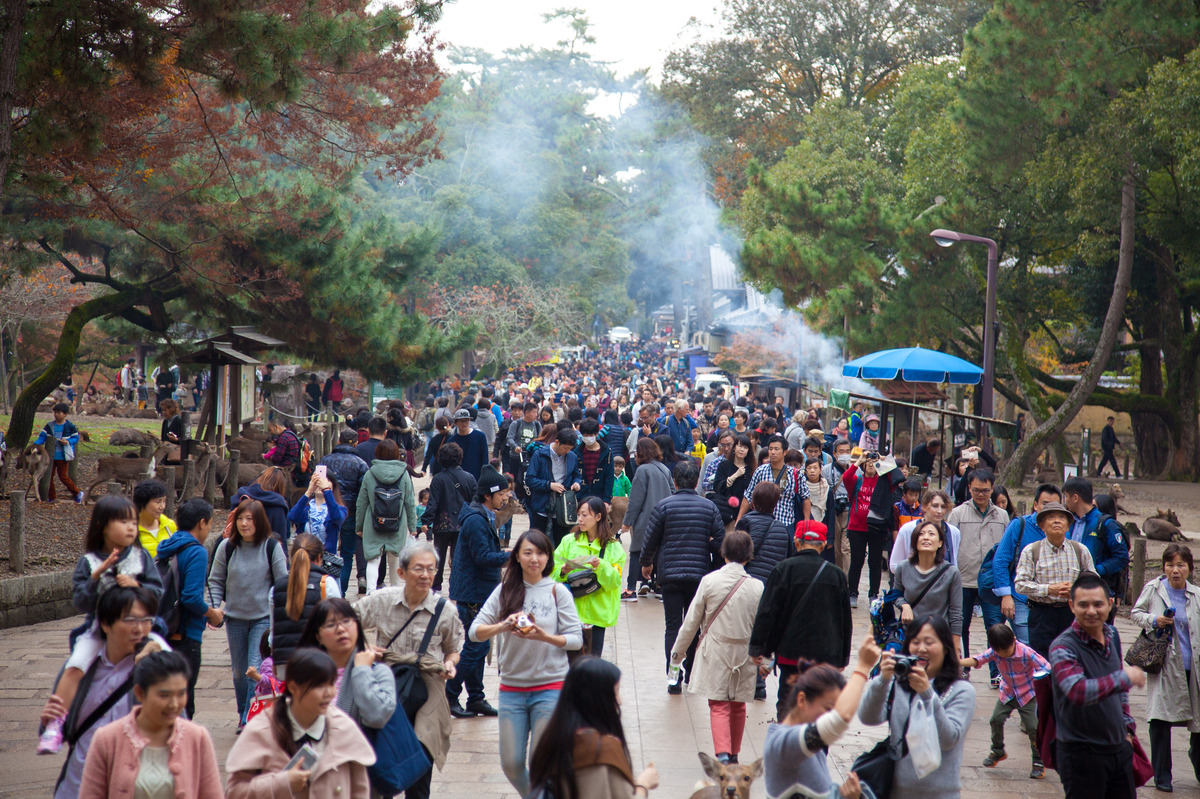Asian Students Now See Hospitality and Tourism as Viable Career Options

Skift Take
As tourists from China and other Asian countries start streaming into popular destinations, Asian students are beginning to populate hospitality and tourism programs more so than in the past.
A visit to a major tourist attraction in any corner of the globe or a stay at a large urban hotel likely includes brushes with numerous strands of diversity.
Determining how to cater and serve these diverse tourists, especially the influx of tourists from China, is a strategy that many hotels and destinations have on their drawing boards.
Students from Asian countries are responding to this market need.
Les Roches International School of Hotel Management in Switzerland has a student body that’s 53% Asian, 35% European and the remaining 12% hail from the Americas, Africa and the Middle East. These percentages yield 99 nationalities at the school.
“As the Asian travel and tourism market increases so does the need for qualified managerial talent,” said Alexia Robinet, a spokesperson for Les Roches. “In other words, our student body reflects the shifts in the global economy, with enrollments reacting to the domestic demand for talent.”
Some American schools report a marked increase in Asian students pursuing hospitality and tourism-related degrees.
The U.S. aside, hospitality, and particularly tourism education, are frontiers still gathering acceptance around the world. Asian students’ attraction to Les Roches may be due in part to Switzerland’s perception as the birthplace of classic hospitality education, Robinet said. Students at the school must complete two six-month internships in addition to other experiential learning in the classroom.
“Switzerland has a long-standing history in this field and experiential learning is at the core of its approach and it is in fact a perfected art among Swiss hospitality institutes,” said Robinet.
Only recently was travel and tourism recognized as a major economic generator for countries, says Nancy Mendelson, CEO and Editor-in-Chief of New York Natives and an adjunct professor at New York University’s (NYU) hospitality and tourism school.
“Over the last 10 years or so, hospitality higher education has shifted from
offering general undergraduate programs in hospitality management to specialized education in order to respond to the current demand for function-oriented professionals within the field,” said Robinet. “As for the industry, they have recognized that their main challenge to address increasing tourism growth is not capital investment but human resources.”
“Hospitality management education has been particularly a product of developed countries. In emerging and less developed economies, higher education offerings in hospitality management are fewer and in many instances, hospitality is seen as a vocational training option. It is not perceived as a professional career option.”
“When we talk to parents and prospective students in emerging markets, for example, we need to emphasize that we offer a business degree which is tailored for the hospitality industry. But it is, at the end of the day, a business degree.”
Mendelson, who’s taught a “Marketing of Destinations” graduate course at NYU for five semesters, notes that in her first semester of teaching she had predominantly American students in her class. As semesters progressed, she noticed a large influx of Asian students, mostly from China and a few Korean students, as well.
“All of my Asian students wanted to spend some time studying and learning about the industry in the U.S., but most of them also really did want to go back to their homelands and make a difference,” said Mendelson. “Many of them felt that if they had that piece of paper saying they had a masters degree in tourism that they could make a difference in their countries. Many were also going through career field changes.”
The chatter so far has been about the rise of the outbound Chinese traveler. Now that Chinese and other Asian students are seeking education from abroad to help improve and advance their countries’ hospitality and tourism sectors, the coming years will certainly see new efforts to boost the quality of the guest experience in their regions.





